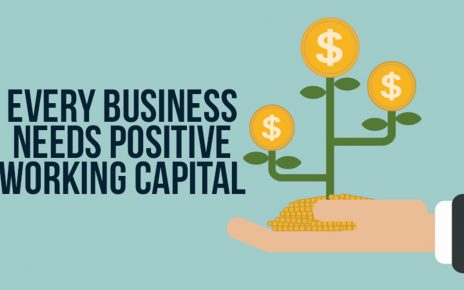Working capital definition has seen many changes in the recent past but the core meaning of the definition still remains to be the same. Every enterprise whether private or government owned owes a lot of credit to the health of it working capital. If this form of capital shows any kind of deviations either ways, it is important to consider the issue for proper investigation. In layman’s terms, working capital is the difference between current assets and current liabilities.
Note that working capital definition centers on the use of current assets and current liabilities in calculating the difference. Current assets of the company account for materials and inventory whose value is destined to bring the company monetary returns. On the other hand, current liabilities include payments and loans that the company is liable to pay to its creditors. Both current assets and current liabilities play an important role in completing the working capital definition as their relevance has a significant amount of impact on the well being of the company.
In this article we are going to talk about the relevance of working capital definition to the businessman, investors and the public in general.
Working capital definition and what does it mean to the businessman
To a businessman his working capital means everything. It is the single and the most accurate measure of the business’s health. It is also a direct indicator of knowing if the business is performing the way it is supposed to perform.
For example, if the working capital runs in negative scale it means the current liabilities of the business are overpowering the current assets. This is bad news for the businessman as it says he has to work twice as hard to bring down the value of current liabilities.
Working capital definition and what does it mean to the investor
Both public as well as private owned businesses have the best interests of the investors in mind because it is the investors who raise capital for the business when needed. The working capital definition provides an instant interpretation to the investor about the venture he is investing in or is interested to invest in.
If the working capital is negative, the investor will think twice about spending his money. If the working capital is positive and if the investor sees that the company is doing a good job in managing its resources, he will be contented making an investment decision.
Working capital definition and what does it mean to the public
The public has a very important role to play in the growth of the company. The public’s perception of the company plays out to be one of the biggest concerns for the company because if the company is not able to generate enough goodwill, future projects may hit a road block. Public that has shares in a company constantly keeps track of the working capital of the company in order to assess the company’s performance and expect returns on their shares.
If the public gets the impression that the company is not doing enough to maintain its working capital, it will be discouraged from investing further. People who already own shares will try to sell them for a less price thus devaluating the company’s total net worth.
Working capital is therefore one of the many first-hand financial indicators of the company that has a big part to play in the general perception of the company and its progress.
If you are someone who is trying to improve the working capital scenario in your company, there are a number of financial analysis options that you can adopt to stay on top of things. There are many companies in London that provide a fully fledged package to help their customers stay in touch with their financial needs.
These companies also provide the latest in financial tools which can be used to store as well as interpret financial data. Some tools are specially meant to work on the working capital definition and provide the needed support in terms of furnishing timely information.




